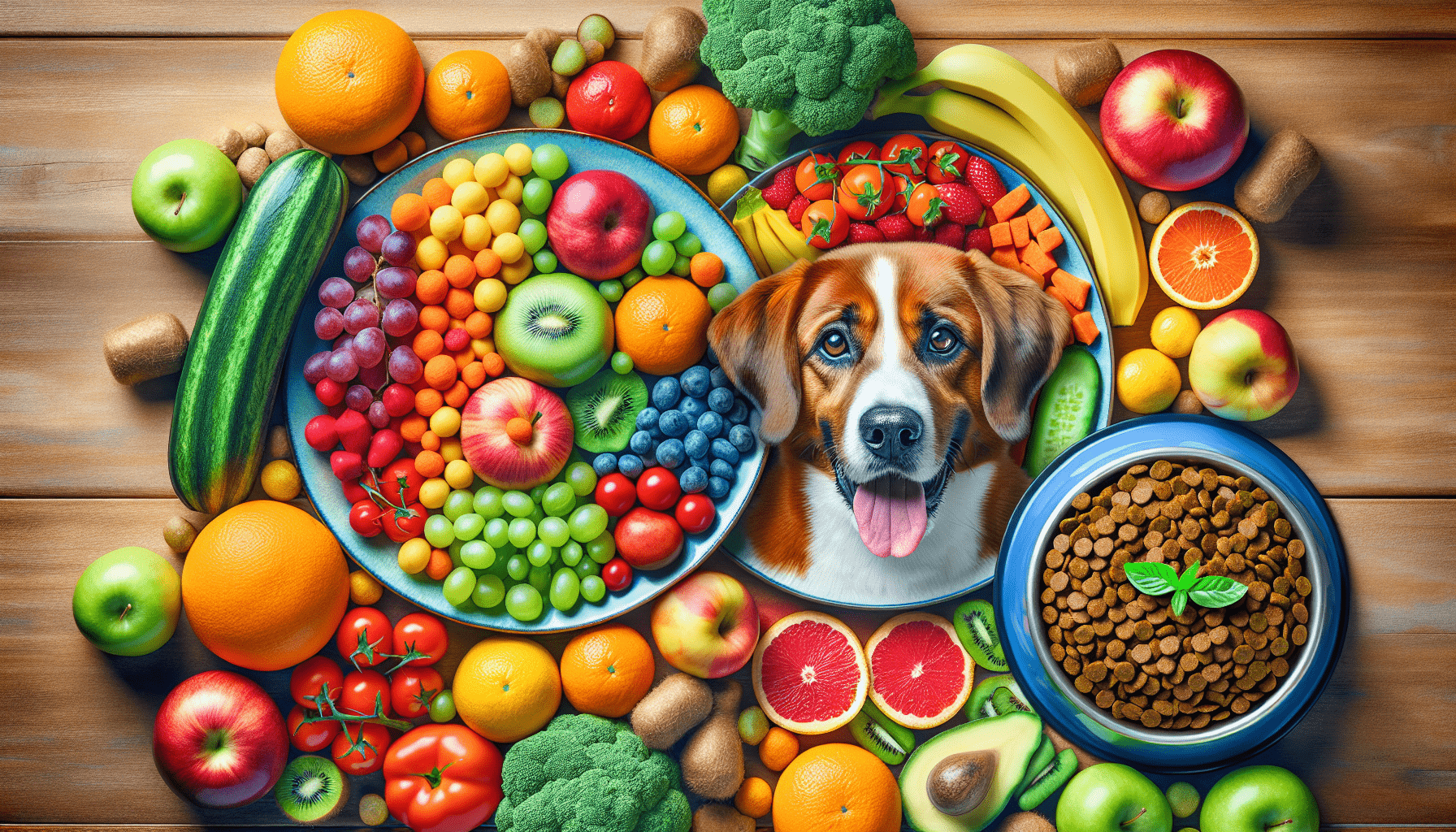Hello there! In this article, we will discuss the importance of maintaining a balanced diet for your furry friend’s health. Just like humans, dogs require a well-rounded diet to stay healthy and happy. From providing essential nutrients to supporting proper digestion, a balanced diet is crucial for your dog’s overall well-being. Stick around to learn more about how you can ensure your dog is getting the nutrition they need to thrive.
The Importance Of A Balanced Diet For Your Dog’s Health
Have you ever wondered if you are feeding your furry best friend the best diet possible? Just like humans, dogs need a balanced diet to stay healthy and thrive. In this article, we will delve into the importance of a balanced diet for your dog’s overall health and well-being.

Why Is a Balanced Diet Important for Your Dog?
You love your dog and want the best for them, right? Ensuring that your pooch gets a balanced diet is crucial for their overall health and longevity. A balanced diet provides your dog with the essential nutrients they need to thrive and prevent diseases and health issues. By feeding your dog a balanced diet, you are setting them up for a happy and healthy life.
The Essential Nutrients Your Dog Needs
Just like humans, dogs need a variety of nutrients to stay healthy. These essential nutrients include proteins, carbohydrates, fats, vitamins, and minerals. Each nutrient plays a vital role in your dog’s overall health and well-being.
Proteins
Proteins are the building blocks of life and are crucial for your dog’s muscle development, tissue repair, and overall growth. High-quality sources of protein include chicken, beef, fish, and eggs. Make sure that your dog’s diet includes an adequate amount of protein to support their health.
Carbohydrates
Carbohydrates provide energy for your dog’s daily activities. They are an important source of fuel for your pup and help them stay active and healthy. Good sources of carbohydrates for dogs include whole grains, fruits, and vegetables.
Fats
Fats are essential for your dog’s skin and coat health, as well as for the absorption of fat-soluble vitamins. Make sure to include healthy fats in your dog’s diet, such as omega-3 and omega-6 fatty acids found in fish oil and flaxseed oil.
Vitamins and Minerals
Vitamins and minerals are essential for your dog’s overall health. These nutrients play a vital role in various bodily functions, from bone health to immune system support. Make sure that your dog’s diet includes a variety of fruits and vegetables to provide them with essential vitamins and minerals.
How to Achieve a Balanced Diet for Your Dog
Now that you know the importance of a balanced diet and the essential nutrients your dog needs, let’s talk about how you can achieve a balanced diet for your furry friend.
Commercial Dog Food vs. Homemade Dog Food
When it comes to feeding your dog a balanced diet, you have two options: commercial dog food or homemade dog food. Both options have their pros and cons, so it’s essential to choose the best option for your dog based on their individual needs.

Commercial Dog Food
Commercial dog food is convenient and typically formulated to meet your dog’s nutritional needs. When choosing commercial dog food, make sure to select high-quality brands that use real ingredients and avoid artificial additives and fillers. Look for dog food that is AAFCO (Association of American Feed Control Officials) approved to ensure that it meets the necessary standards for your dog’s health.
Homemade Dog Food
If you prefer to feed your dog homemade food, it’s crucial to do your research and consult with a veterinarian or canine nutritionist to ensure that your dog’s diet is balanced and meets their nutritional needs. Homemade dog food allows you to control the ingredients and provide your dog with a fresh and natural diet. Make sure to include a variety of proteins, carbohydrates, fats, vitamins, and minerals in your dog’s homemade food to ensure a balanced diet.
The Importance of Portion Control
Whether you choose commercial dog food or homemade dog food, portion control is essential for your dog’s overall health. Overfeeding can lead to obesity and other health issues, while underfeeding can result in nutrient deficiencies. Consult with your veterinarian to determine the appropriate portion size for your dog based on their age, weight, and activity level.
Additional Tips for a Balanced Diet
In addition to choosing the right food for your dog and managing portion sizes, there are a few additional tips to ensure that your furry friend gets a balanced diet.
Treats
While treats are a fun way to reward your dog, it’s essential to limit the number of treats they receive to prevent overfeeding. Look for healthy, low-calorie treats made with real ingredients to supplement your dog’s diet without adding unnecessary calories.
Hydration
Just like humans, dogs need access to clean and fresh water throughout the day to stay hydrated. Make sure that your dog always has access to water to support their overall health and well-being.
Regular Exercise
In addition to a balanced diet, regular exercise is crucial for your dog’s health. Physical activity helps your dog maintain a healthy weight, build muscle, and stay mentally and physically stimulated. Make sure to provide your dog with enough exercise to support their overall health and well-being.
Conclusion
In conclusion, feeding your dog a balanced diet is essential for their overall health and well-being. By providing your furry friend with the essential nutrients they need, you are setting them up for a happy and healthy life. Whether you choose commercial dog food or homemade dog food, make sure to prioritize high-quality ingredients and portion control to ensure that your dog gets the nutrients they need. Remember, a balanced diet is key to a healthy and happy pup!

